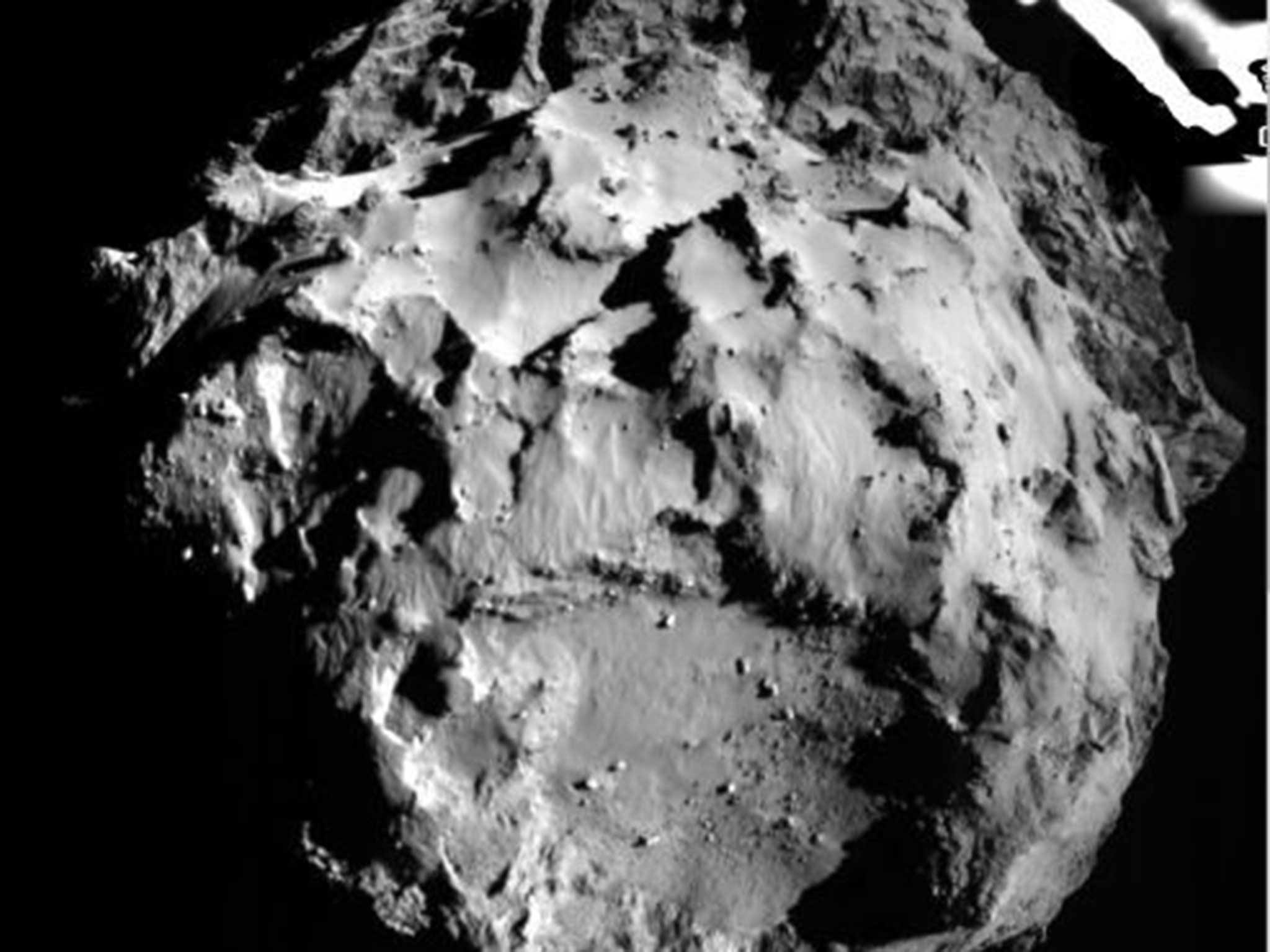Rosetta space mission voted most important scientific breakthrough of 2014
Other discoveries in robotics, medicine, engineering and paleontology also celebrated

The Rosetta space mission which has for the first time put a spacecraft in orbit around a comet and landed a robotic probe on its surface has been voted the most important scientific breakthrough of 2014 by the editors of the journal Science.
Rosetta was voted top out of a list of 10 scientific breakthroughs which included major advances in medicine, robotics, synthetic biology and palaeontology – with the discovery that cave art in Indonesia thought to be 10,000 years old is actually between 35,000 and 40,000 years old.
The European Space Agency mission began in earnest 10 years ago when the Rosetta spacecraft was launched but this year saw it catch up with comet 67P/Churyumov-Gerasimenko and complete a complex serious of manoeuvres to put it into orbit.
However, the highlight of the mission so far was the successful soft landing of its Philae probe onto the surface of the icy object – not once but three times as it gently bounced twice from its intended landing site.
“Philae's landing was an amazing feat and got the world's attention. But the whole Rosetta mission is the breakthrough. It’s giving scientists a ringside seat as a comet warms up, breathes, and evolves,” said Tim Appenzeller, news editor of Science.
An instrument on Rosetta has already detected water, methane and hydrogen as well as rarer molecules such as formaldehyde and hydrogen cyanide, findings that could indicate whether comets delivered the vital ingredients of life to the early Earth.
“Breakthroughs should do one of two things: either solve a problem that people have been wrestling with for a long time or open the door to a lot of new research. In this case, most of the really good science lies ahead,” said Robert Coontz, deputy news editor of Science.
Join our commenting forum
Join thought-provoking conversations, follow other Independent readers and see their replies
Comments
Bookmark popover
Removed from bookmarks